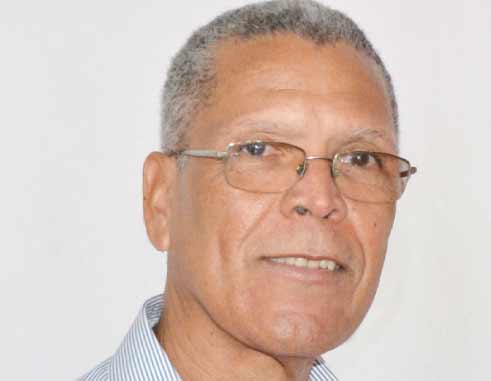 WHILE we’re not looking, or at least not paying attention, amazing things have been taking place in our country. Some of it is actually reported in the media, in the sense that a report is made of something having happened, but there is no sense of wonder or amazement by the public in the face of these facts.
WHILE we’re not looking, or at least not paying attention, amazing things have been taking place in our country. Some of it is actually reported in the media, in the sense that a report is made of something having happened, but there is no sense of wonder or amazement by the public in the face of these facts.
We seem to be constantly battered by the events which now constitute our lives, and have little room left for wonderment. And so, as we see the opening of a new school year, the struggle, as usual, has been to obtain uniforms and textbooks so that our education cycle can continue.
What we hear of are the frustrations of parents unable to find textbooks, the cost of these textbooks when they are available, and the large numbers of them required by every child. Parents, caught up in the frenzy of meeting the deadline for the start of school have little time or opportunity to consider the process that they are engaged in, and nobody else questions it.
Amazing, because, as we have seen in an earlier article in these discussions, nearly 50% of the children moving through the primary and secondary school system are unable to read, write, or do arithmetic. And as these are the essentials for a productive life, then it must mean that at least 50% of the effort and money being spent by parents on the back to school ritual is going to waste.
Amazing, as for every failing child, this waste takes place every year for six years in primary school, and then for five more years in secondary school. Add to that the wastage of 50% of the budgeted recurrent expenditure by the Ministry of Education each year, which for 2016 is EC$178m, and the size of the problem begins to emerge. We’re ritually spending a lot of money on education with little change in the poor quality of the results of our children.
Of first note is that this failure rate by our children is not the fault of the technocrats in our Ministry of Education, neither is it the fault of our teachers, as this rate of failure is not unique to St. Lucia; similar rates are reported throughout the region. There can be no question either that the technocrats in the Ministry of Education understand the issues and recognize the approaches that are needed to remedy this cancer. Dr. Jules, formerly of the CXC, has written extensively on these issues, and as recently as in an October 11, 2012 interview with the Star newspaper pointed to early childhood education as being the shaky foundation on which our education system is built.
It was therefore significant when, following its announcement of a new five-year Education Sector Development Plan in September last year, the Ministry of Education held a sensitization workshop to introduce a curriculum framework for early childhood education in May of this year. In addition, as part of its campaign promise, the new government indicated that it would be doubling the size of the school-feeding programme. These are all steps in the right direction.
Unfortunately for our technocrats and politicians, we will not see the full benefits of those and any other interventions which are made for another 10 or so years as those first properly fed and educated at the early childhood stage emerge from our secondary schools. A mechanism is therefore needed for maintaining commitment over that period, and one possible route may be for the Ministry of Education to publish students’ performance in a tabular form, allowing comparison of performance over the years as the interventions by the Ministry take hold.
So that, for example, the pass rates for English and for Mathematics at CSEC for 2015 were 65% and 55% respectively. We have been able to deduce the rates for 2016 from a report in this newspaper which suggests that 71% of our students passed English A, while 46% passed Mathematics. (These percentages may not reflect the full class sizes).
Whatever the actual pass rates are, we need the Ministry of Education to issue a simple data set providing those figures so that the population at large can be continuously reminded of the task at hand. If nothing else, we should know the total number of children in Form 5 in all secondary schools, and the numbers and percentages of those students passing English A and Mathematics at CSEC level.
The same applies to the Common Entrance Exam, this newspaper having reported the percentages of students scoring above or below a national mean this year. Nobody understands what these percentages mean. So, for example, we have this newspaper reporting that 52.91% of students scored above the national mean of 62.73%, and in the next paragraph indicating that the national mean for English fell from 65.24 % last year to 57.34% this year. We can speculate on what all of that means, but it would serve a much greater purpose if the data would be presented by the Ministry of Education in the format suggested above for CSEC: total number of primary students enrolled, number and percentage passing English, and number and percentage passing Mathematics.
The failure rates of our primary and secondary school students indicate that our education system is not serving them, but on the re-opening of schools this year, another amazing thing happened. Students and teachers of the George Charles Secondary School were scooped up and deposited in the Jon Odlum Secondary School so as to accommodate relocation of some of the Sir Arthur Lewis Community College students, and the integration seems to have gone smoothly. Not only that, but the public seems to have swallowed this herculean feat in one gulp, with no questions asked.
This, however, is the legacy of the drive to Universal Secondary Education on which the last administration prided itself: half-empty secondary schools, with more than half of the children who are in those schools leaving without having acquired a secondary education. And if we have half-empty secondary schools, then the primary schools feeding them must be half-empty as well. Somehow, we have come to accept all of this as normal.
But now we are faced with what can only be termed a national disgrace, as following articles and an editorial in this newspaper describing the atrocious state of physical neglect in which some schools have been found, we have the Minister of Education telling us that of a requested budget for school maintenance this year of EC$13m, only EC$1m was allocated by the previous administration. Yet, we are in the process of constructing two new schools: a primary at Dennery, and a secondary at Choiseul. We have too many schools, we cannot maintain those that we have, but we continue to borrow to build new schools. Amazing.
Our education system has failed our children, and there is going to be a price to pay for this. Earlier this year in Trinidad & Tobago, when commenting on the spate of criminal and gang activity found in some of that nation’s secondary schools, Prime Minster Rowley suggested that there were monsters in some of those schools. As Dr. Rowley is quoted in the Trinidad Express of February 12 this year, “parents were breeding monsters and sending them to the teachers”.
Our poorly educated children of today are going to be our parents of tomorrow. Let us hope that we can arrest this unfolding tragedy in our education system before we too have to let out that cry from Dr. Rowley.












Another excellent piece Mr. Prescod’s!
There is no argument our education system has failed and is failing our children. But who is to blame for this sad state of affairs. What is clear is that there’s enough blame to go around. Successive Governments, technocrats in the Ministry of Education, teachers, students and parents must all share the blame. We have too many schools. That’s a fact! So why are more schools being built? We have too few teachers, especially in the early childhood education area. That’s also a fact! So what is being done to address this? The Dame Pearlette School was supposed to be the model for secondary schools. Has this school been evaluated? Are other schools being evaluated outside of the results of CXC examinations? Has the laptop program had any positive impact on learning? If yes, then how can be expanded and improved? We’ve know for some time of wide-ranging social factors, like poor nutrition and inadequate parental supervision that have impeded the learning capabilities of our children? Is the school feeding program having any effect?
One does not get the sense that all that could be done to improve the education system is being done.
We change the government and the replacements are awkwardly as incompetent as those that left. There is no national plan. The key teaching institutions are left untouched.
The outputs are very aged children birthing other children who end up like the previous batch. They came in as sheep and leave as aging goats. Graduates have no ready to work skills, other than hotel maids and gardeners, but foolishly vote for other gray-haired children who fool them with slogans of jobs, jobs, jobs. They happily settle for the high-paying jobs like STEP.
Are Saint Lucians stupid?
Yes and very ignorant too. We have a majority population that is both ignorantly stupid, and stupidly ignorant.